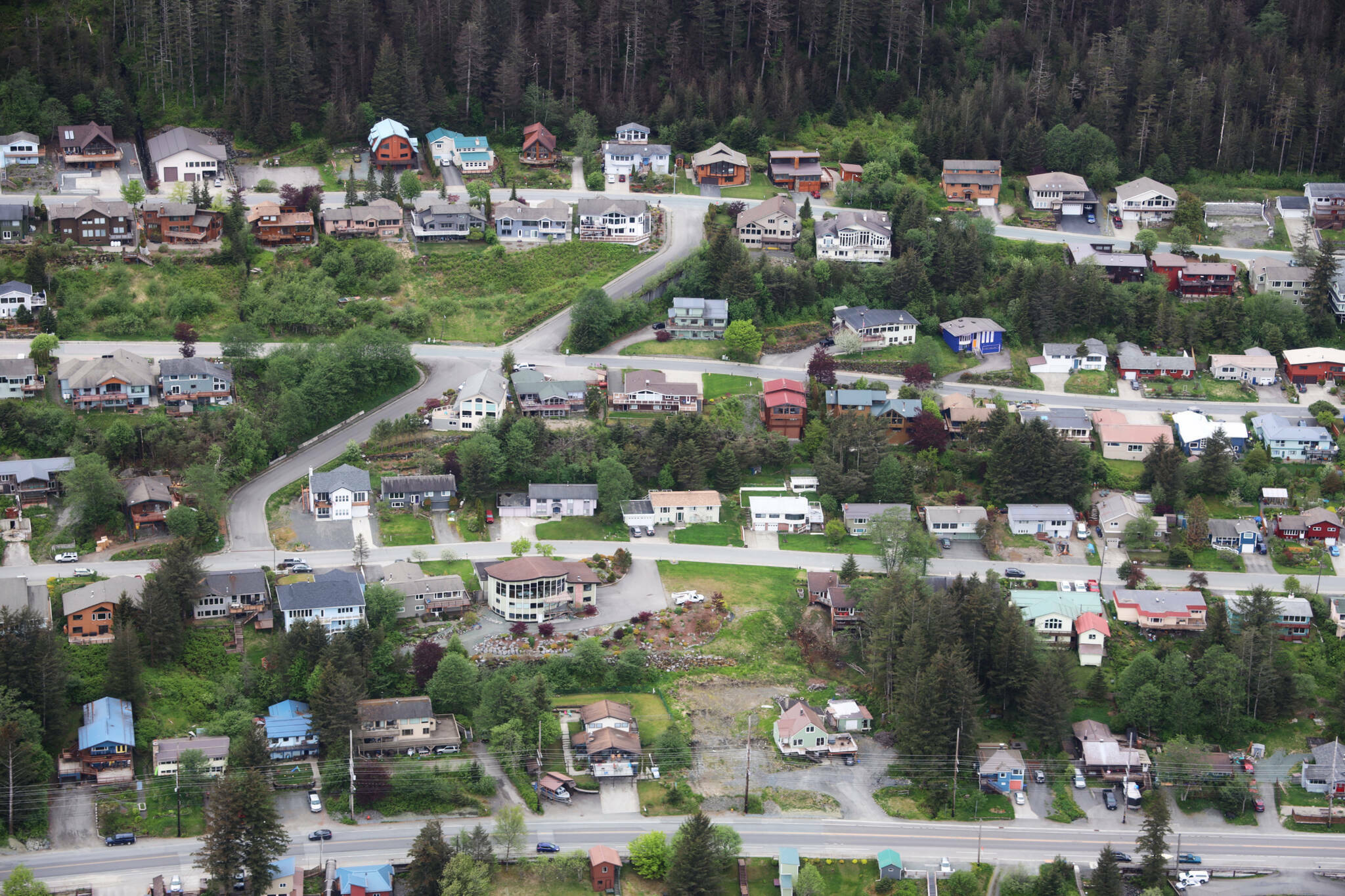Trying to resolve a long-term debate about short-term rentals such as Airbnbs in Juneau is the goal of a task force conducting its first meetings this month in the hope of offering recommendations and/or formal policy proposals to the Assembly in time for adoption by this summer.
The Assembly passed an annual registration requirement for short-term rental operators in 2023 after lengthy consideration. But the issue has persisted along with Juneau’s ongoing housing shortage, with further possible restrictions such as how many units a property owner can operate being part of the discussion.
The 11-member task force is scheduled to meet every other week beginning Jan. 30 and at least two public forums are planned by March 31, according to the guidelines approved by the Assembly when it established the task force in November. The group consisting of three Assembly members and eight residents “representing the various facets of the community” held its first meeting Jan. 7, where a 55-page “starter kit” overviewing existing local data and policies in other Alaska towns was presented.
“While we’re throwing the book at housing, and we are literally doing everything in our power to try and increase the housing in Juneau, that does make this an appropriate time to look at Airbnbs because we don’t want our housing efforts to be harmed by short-term rentals,” said Wade Byrson, an Assembly member who is the chair of the task force, in an interview Wednesday.
“Or what a lot of people are afraid of is the city investing to help people expand — like units, or their house or more apartments — only to have those go to short-term rental Airbnbs. And that is a big fear of a lot of what citizens have said and so if we’re throwing so much money in housing having some very real rules surrounding some realistic expectations surrounding short-term rentals, I think it’s an appropriate time for it.”
The issue reached a fervor leading up to the inaugural (and only, it turned out) Ironman Alaska triathlon in August of 2022, which created an enormous one-time market for homeowners looking to rent out rooms or their dwellings. That issue has since been supplanted by other housing-related concerns including glacial outburst flooding threatening hundreds of homes and the announced homeporting of a U.S. Coast Guard icebreaker that could result in 190 personnel and their families needing a place to live.
“Surrounding the time of Iron Man it’s a different picture,” Bryson said. “But now here we are a couple years later and we’re looking at a different environment. So we want everything codified and have like ‘this is what’s going on with it.’ So that way citizens that want to rent out part of their home, they’re fine. The rules say a citizen can — here’s the only two rules that you have as a citizen, or as a resident doing a one-person or one-room operation or one-unit operation…There might need to be a different rule for somebody that has like 10 of their own and then they manage 20 or 30 other ones.”
Also, he said, “it’s one thing to make a couple of bucks a couple of times doing Airbnb. It’s another thing to operate part of your house as a business.”
Juneau had 389 short-term rental listings in August of 2022, compared to 371 in August of 2023 and 335 for a 30-day period ending Nov. 27, 2024, according to the overview presented to the task force. Listings dropped during the winters to 182 in January of 2023 and 193 in February of 2024.
A state review published in September of 2022 showed Juneau’s 379 listings at the time of the study represented 2.71% of the city’s 13,972 households, a middling showing in a comparison of 10 cities that showed a low of 1.14% in Wrangell-Petersburg and high of 6.86% for the Kenai Peninsula.
Alaska does not have specific statewide regulations for short-term rentals and a legislative bill introduced in 2023 limiting owners to one registered unit failed to make it out of committee, the task force’s “starter kit” notes. Policies in 13 municipalities are also summarized in the document, ranging from Homer which has no rules of any kind to Wasilla that has an extensive list of operational and registration requirements.
Juneau is seen as different than many Alaska communities because there are two extended periods during the year when temporary housing for workers is in great demand: the legislative session between January and May, and the summer tourism season that peaks between May and September.
The Short Term Rental Task Force has a challenging task ahead to make recommendations which will keep the local housing ecosystem in balance with sufficient units for seasonal/transient use while acknowledging that there is also a very tight market for year-round rentals,” the overview presented during the meeting earlier this month notes.
Data presented to Assembly members last year shows an estimated 79% registration compliance rate by short-term rental operators. About 82% of such rentals are single units (not shared) and about half of the operators live onsite.
“Most Juneau STRs are operational during the summer tourist season, but it is estimated that only 17% of Juneau’s STRs are available 270 days per year or more,” the task force overview notes.
The estimated average price per night for a short-term rental in Juneau between May 2023 and April 2024 was $260 per night, according to Rain Coast Data. The initial task force presentation notes a property owner could make nearly triple from such a rental if it’s continuously occupied compared to charging a monthly rent of $2,700.
“Even if a property owner did not pursue year-round operation as an STR, they could match the annual revenue of a high-income long-term rental within approximately 125 days as an average priced STR,” the overview notes.
• Contact Mark Sabbatini at mark.sabbatini@juneauempire.com or (907) 957-2306.

